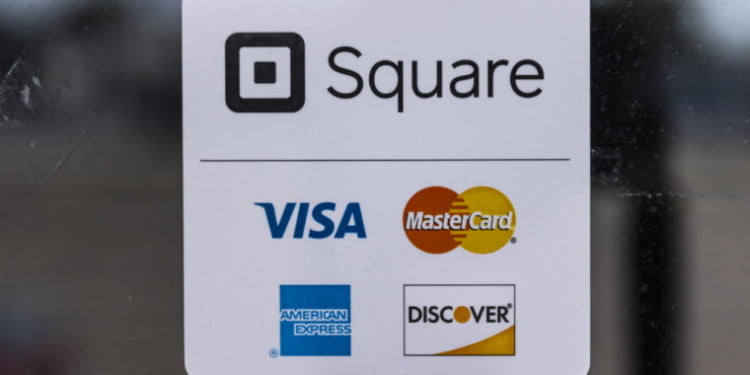The U.S. Patent & Trademark Office (USPTO) last week granted Square a patent for a submission from September 2017. The patented payment network will allow crypto holders to purchase many goods and services from mainstream retailers using Square’s system as a middleman. Square will charge a fee for the use of the network, while retailers will receive the price of their goods and services in fiat.
Transaction Latency
Many roadblocks stand in the way of mainstream adoption of cryptocurrencies. Different projects are seeking to address them in different ways, but one big one that remains a disadvantage for Bitcoin is the sheer time it takes for transactions to go through. Visa and Mastercard can process your purchase in seconds, but if you pay with Bitcoin, that money won’t reach the merchant in less than ten minutes, no matter what fee you pay.
That is if you send payment from a private wallet. Square notes in their application that they may go the route of centralized exchanges, where you first have to credit a personal account. Spending money from that account will then work the same as trading on the primary exchanges, with all transactions being off-chain, registered only on Square’s internal ledgers. This will allow the payment, as far as the merchant is concerned, to go through as quickly as any credit card.
It does, of course, carry the same tradeoffs as keeping your coins on exchanges – you are not ultimately in control of your account. With a market cap of 35 billion USD in the stock market, we can safely say Square is not going to exit scam and keep your Bitcoin. However, other concerns remain.
As a completely centralized U.S.-based financial entity, Square will be able to freeze the accounts of users – an issue that has driven many a frustrated Paypal customer to crypto over the years.
Market Penetration
Square is by no means the first company to offer crypto to fiat payment network. The history of that goes back to Bitpay and 2011. Square, however, has the significant advantage of being an old player in the digital payment industry, with many large businesses already employing their services to accept payment from customers. The ability for customers to pay with crypto will be only one more service they offer their business partners, not their whole game, as with so many crypto startups.























